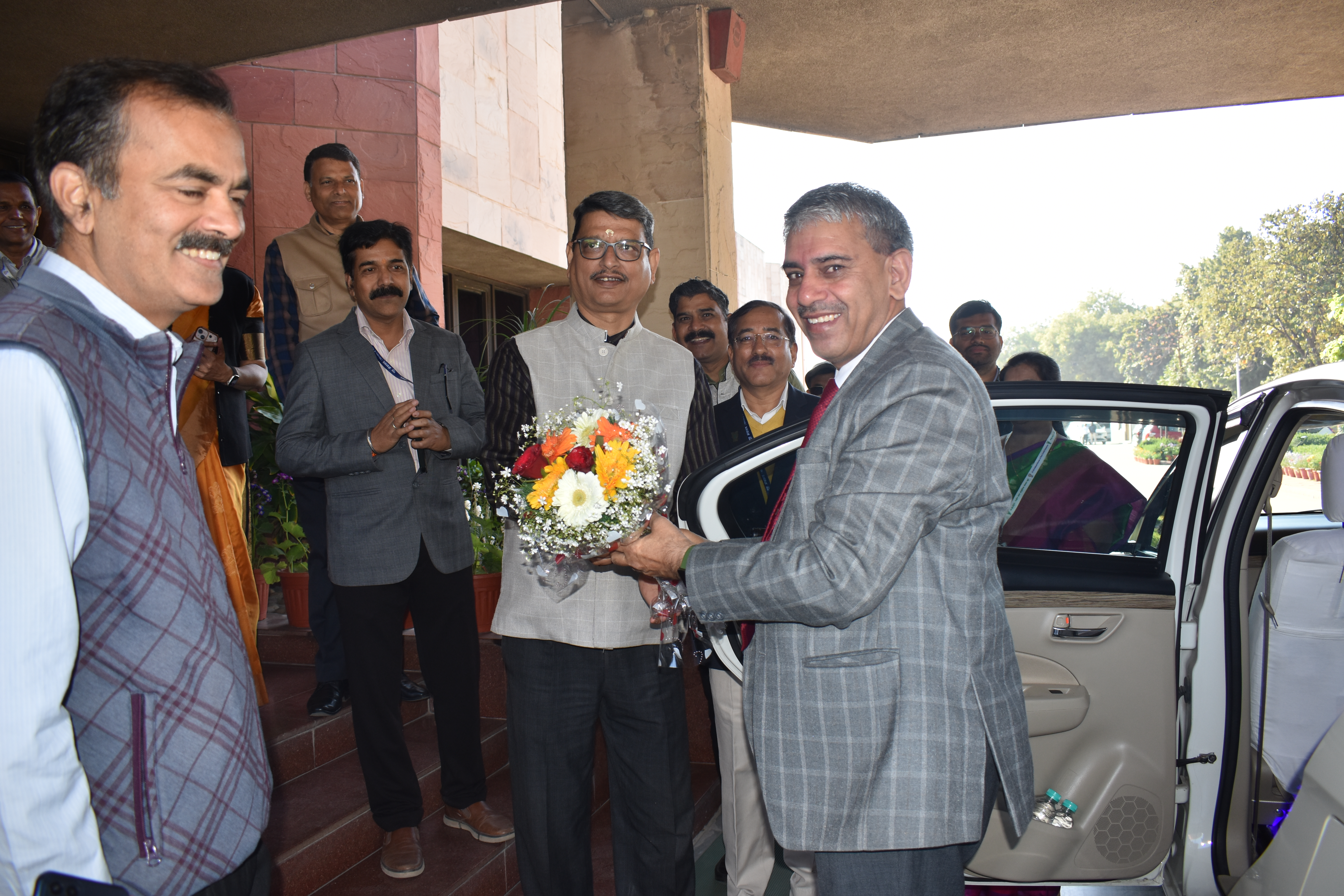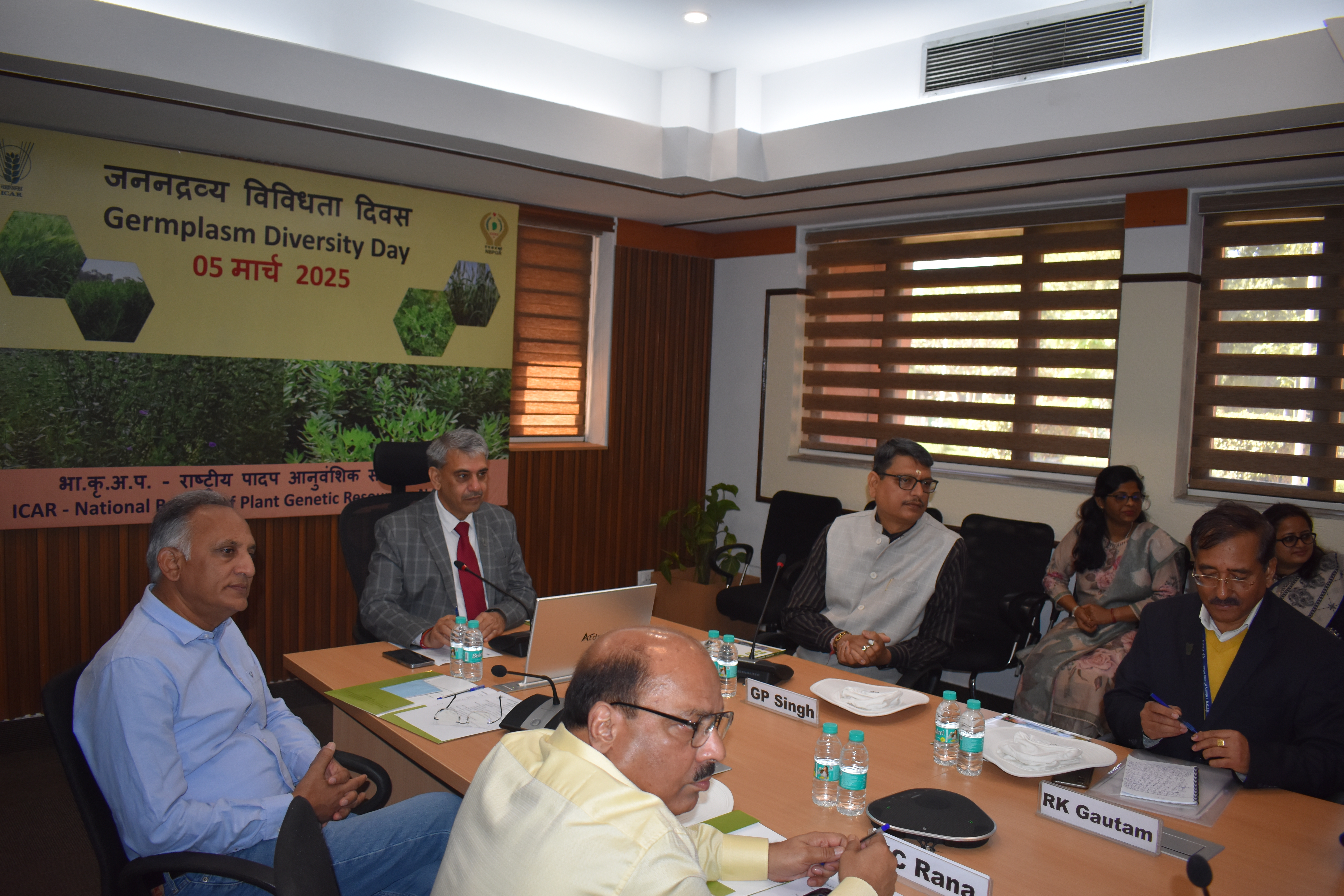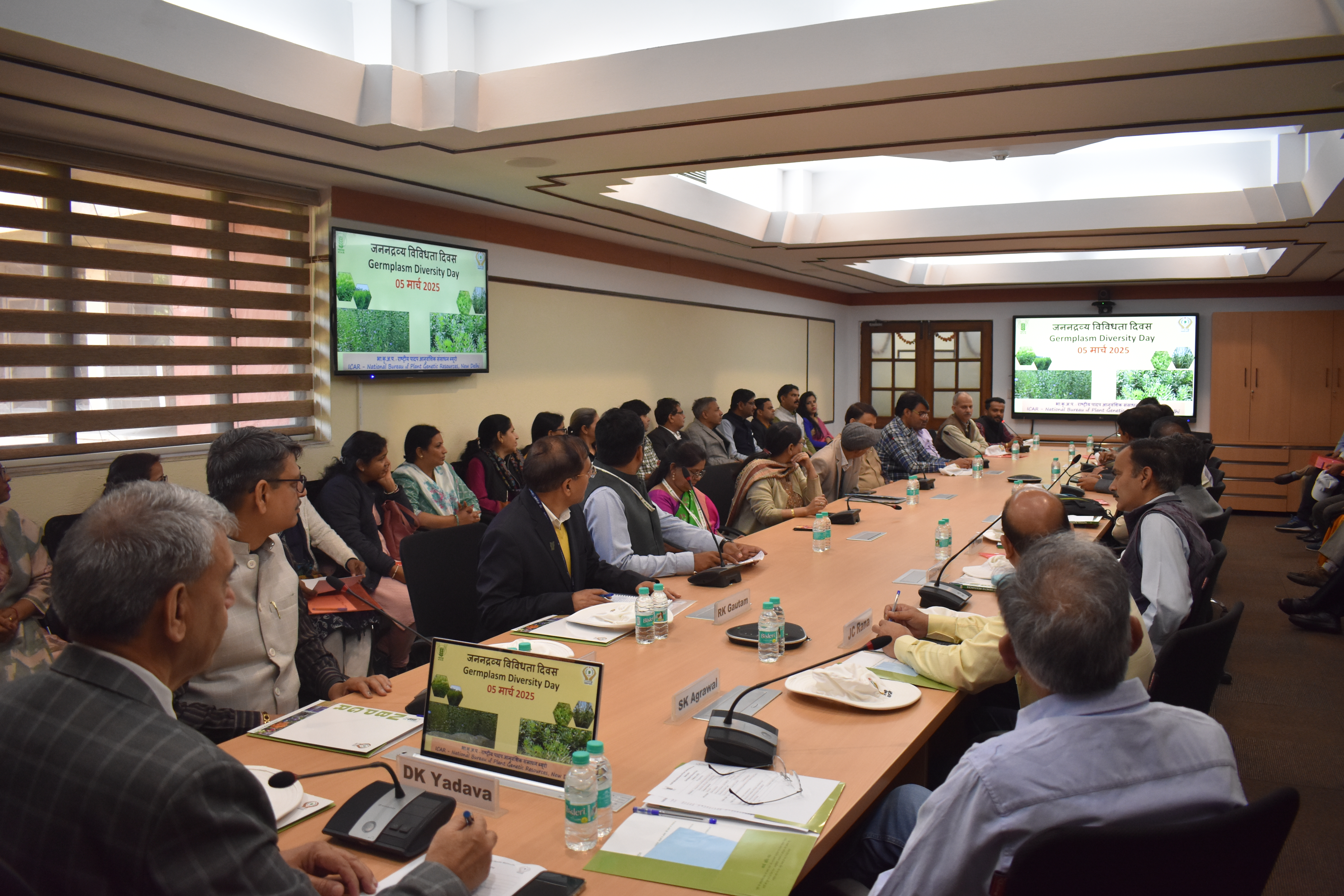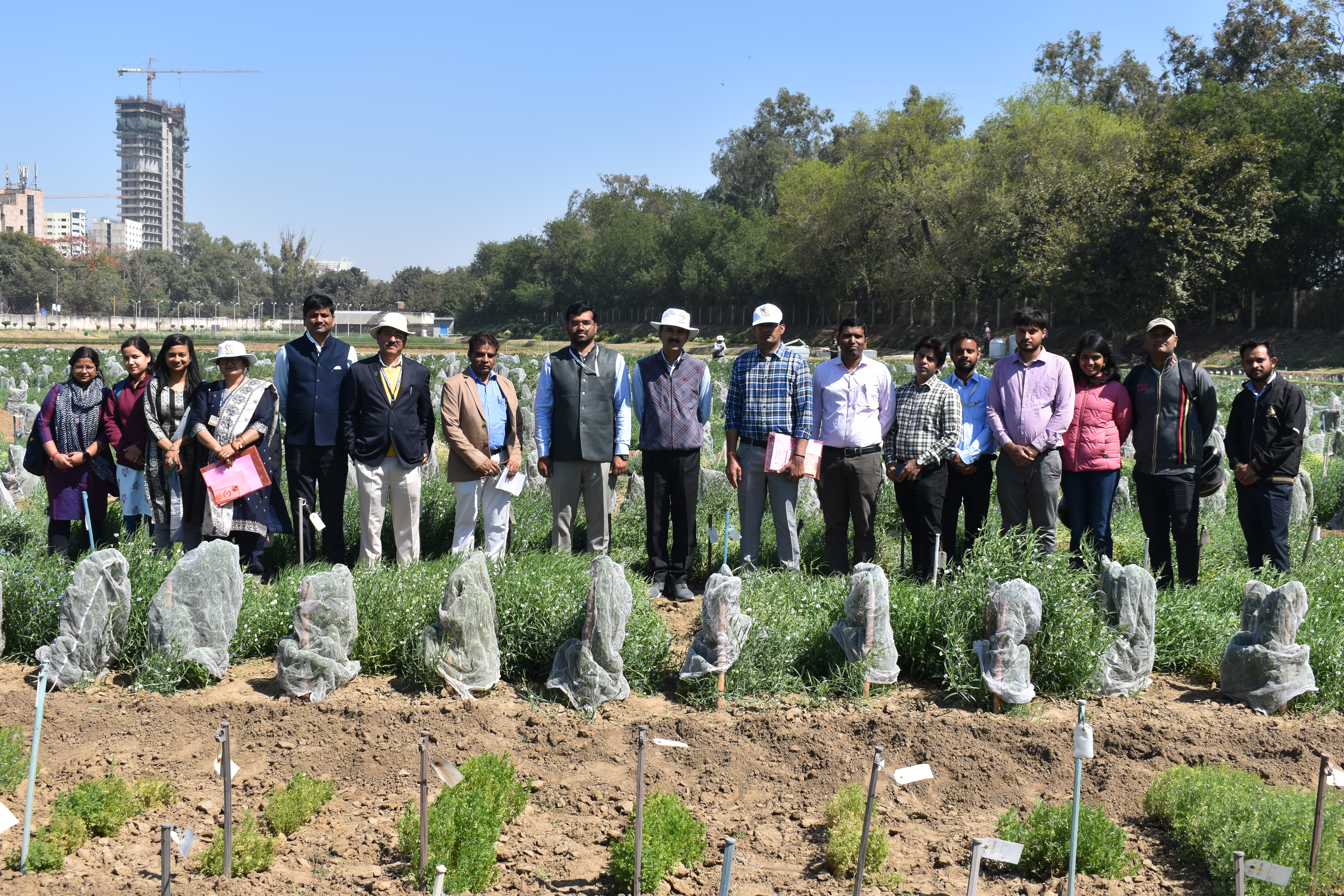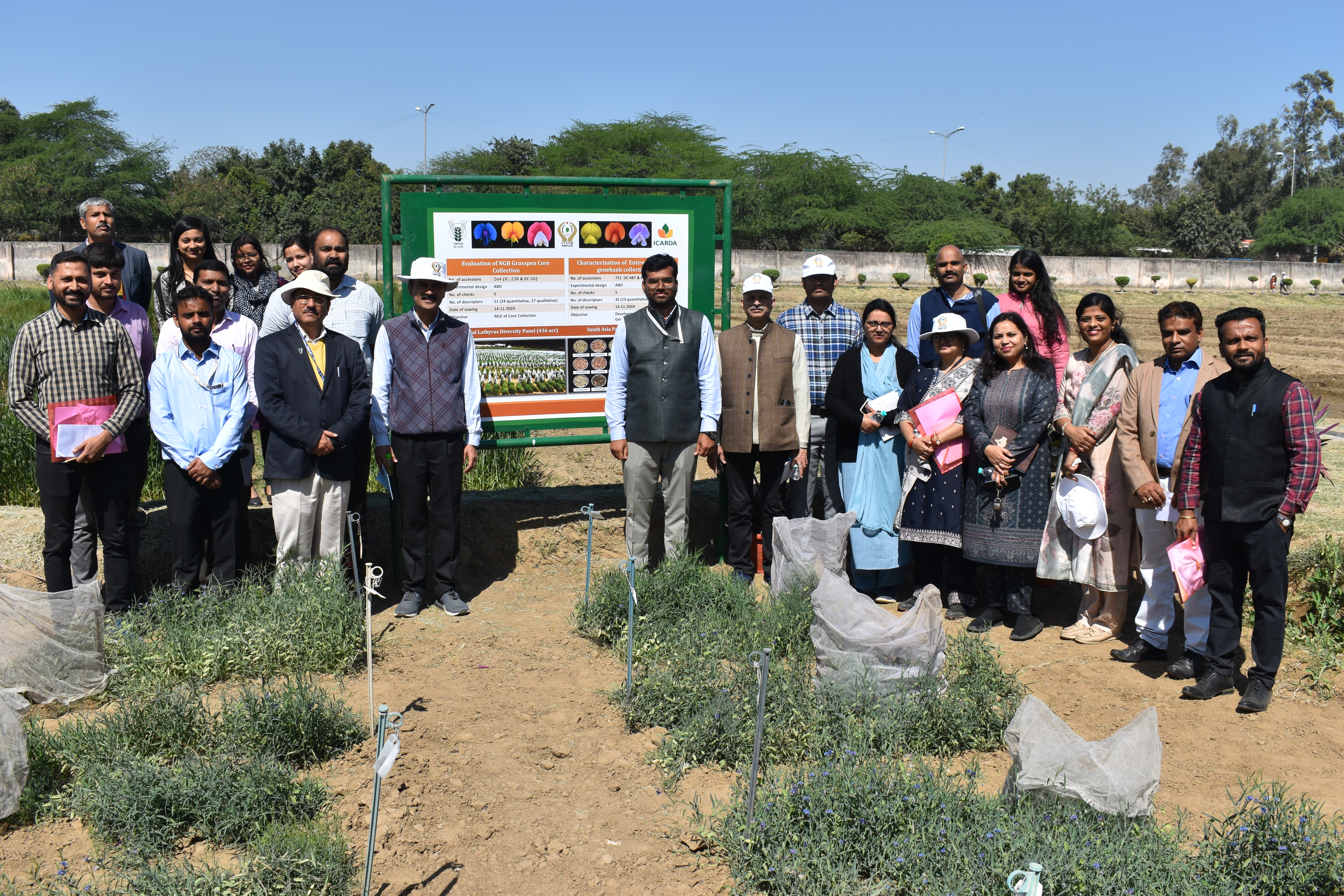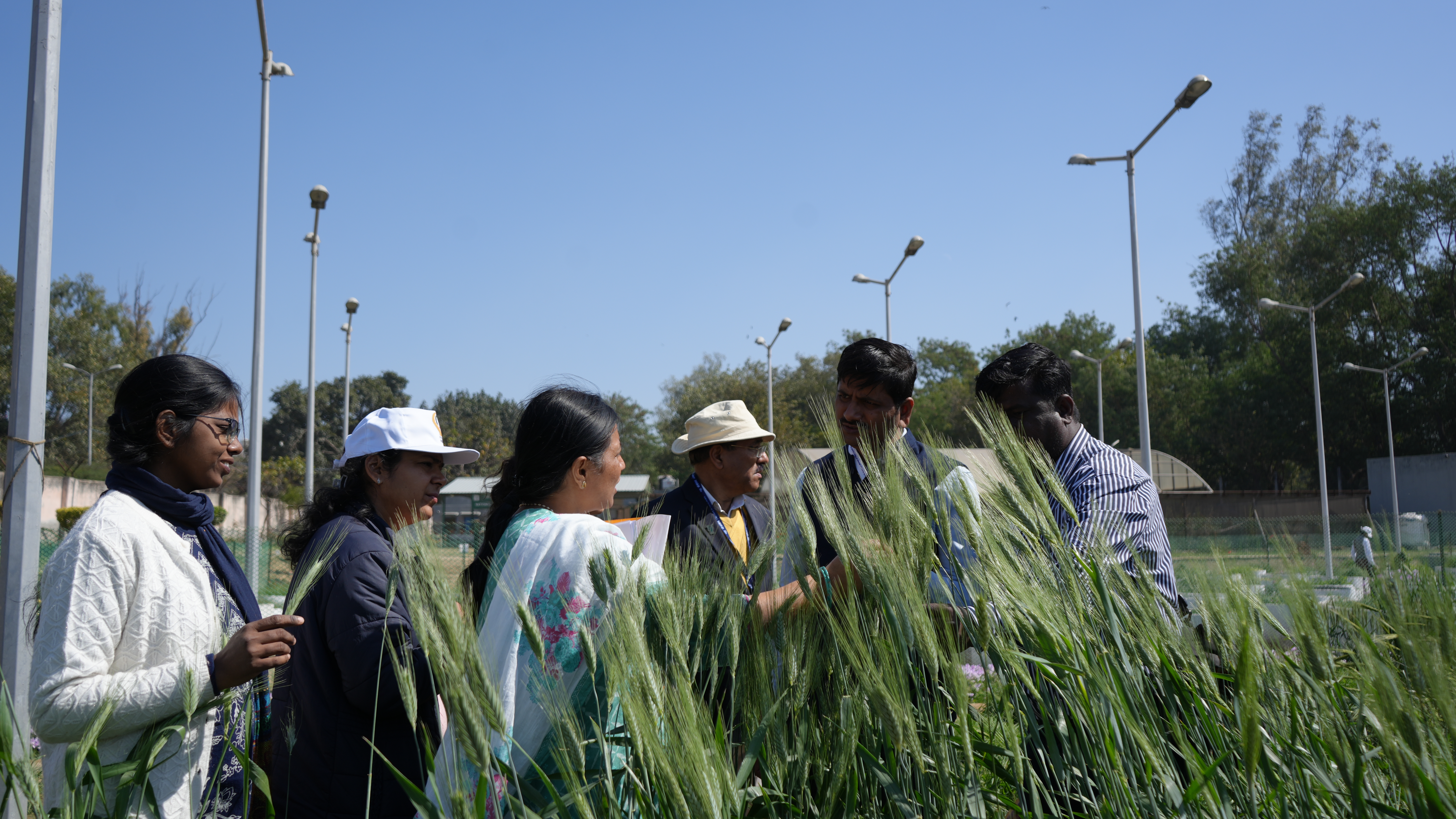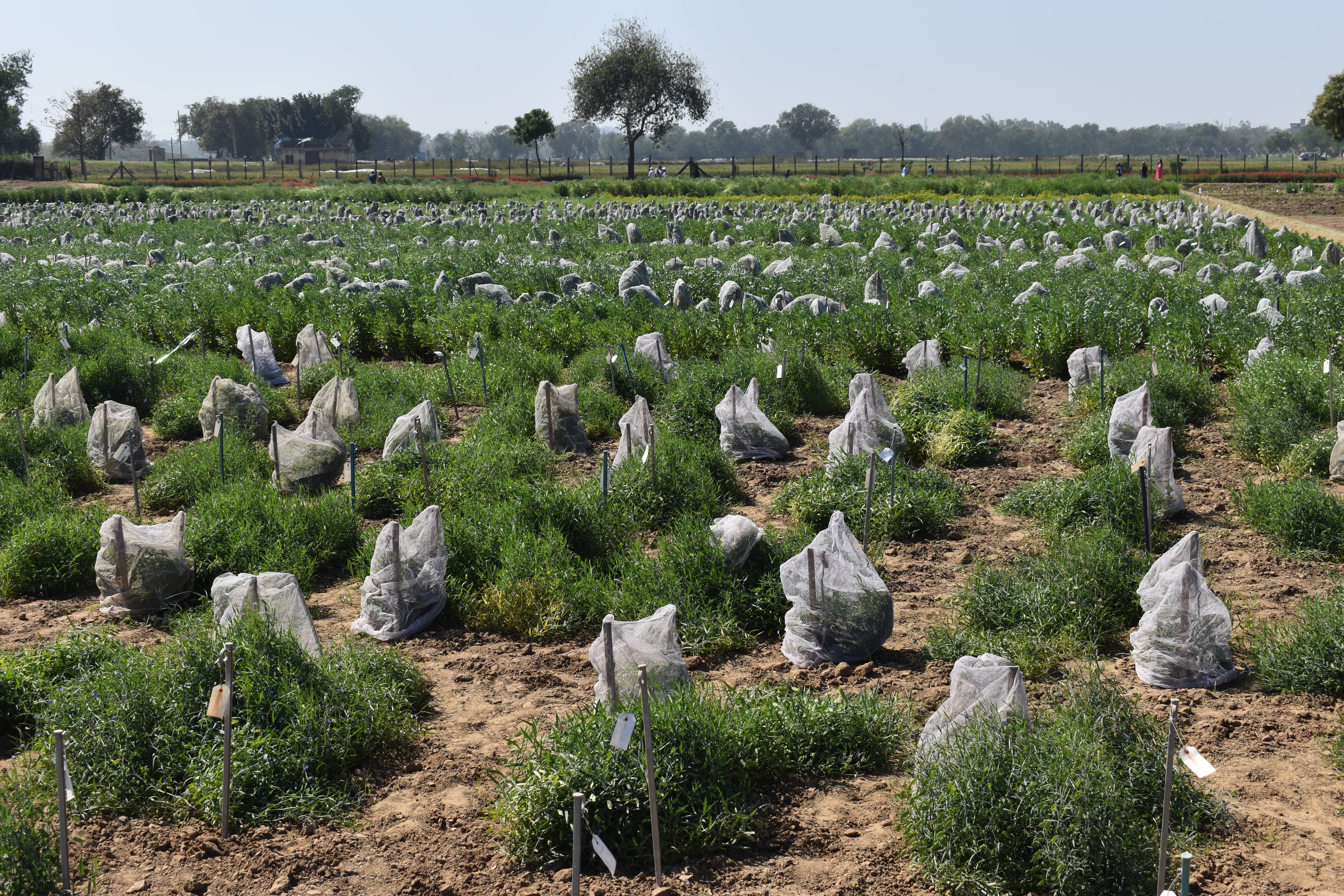The Germplasm Diversity Day was celebrated on 5th March 2025 at ICAR-NBPGR Pusa Farm, New Delhi, with the esteemed presence of distinguished dignitaries. The event was honoured by the Chief Guest, Dr. D.K. Yadava, Deputy Director General (Crop Science). Other eminent guests included Dr. J.C. Rana, Country Representative for the India office of the Alliance of Bioversity International and CIAT; Dr. S.K. Agrawal, Head of the Food Legume Research Platform (FLRP) of ICARDA and Regional Coordinator for the ICARDA South Asia and China Regional Program; Dr. Sailesh Tripathi, Project Coordinator for the All India Coordinated Research Project (AICRP) on Rabi Pulses; and Dr. V.K. Yadav, Project Coordinator for the All India Coordinated Research Project on Forage Crops and Utilization.
The event witnessed the participation of around 50 attendees representing 15 organizations, including ICAR-IARI, New Delhi; AICRP Hyderabad; ICAR-IIOR, Hyderabad; ICAR-NBPGR, New Delhi; ICAR-IIPR, Kanpur; ICAR-RCER, Patna; ANDUAT, Ayodhya; and CSKHPKV, Palampur, among others. The program commenced with the inauguration of an institute facility by the Chief Guest, followed by an inaugural session that began with a warm welcome address by Dr. R.K. Gautam, Head of the Division of Germplasm Evaluation. This was followed by a brief introduction of all participants. Dr. G.P. Singh, Director, ICAR-NBPGR, delivered insightful remarks on germplasm diversity and its conservation, emphasizing the significance of conserving these valuable genetic resources. Dr. D.K. Yadava highlighted the crucial role of germplasm diversity and genetic resources, underscoring the importance of field days in facilitating their effective utilization.
More than 3700 germplasm accessions of different crops grown during rabi 2024-25 were showcased at NBPGR Farm Pusa Campus to the visiting plant breeders and researchers. Dr. Kuldeep Tripathi, Senior Scientist, ICAR-NBPGR, led the field visit, where participants explored the Crop Wild Relative Garden, showcasing five different crops with 171 accessions grown under extended photoperiod conditions. The visit also included the Lathyrus core collection (264 accessions), Lentil (143 accessions), and Faba bean (751 accessions) being characterized and preliminarily evaluated. Additionally, germplasm accessions of wheat, linseed, fenugreek, and barley were under evaluation for abiotic stress tolerance. Trait-specific faba bean nurseries were also on display. Participants had the opportunity to select germplasm aligning with their breeding objectives and appreciated ICAR-NBPGR’s efforts in showcasing valuable crop genetic resources, including trait-specific germplasm. Furthermore, participants attended a session on Material Transfer Agreement (MTA) and germplasm sharing guidelines, conducted by Dr. Pragya, Principal Scientist, Germplasm Exchange Division, ICAR-NBPGR. The event concluded with a vote of thanks delivered by Dr. Kuldeep Tripathi, marking the successful completion of the Germplasm Diversity Day.
